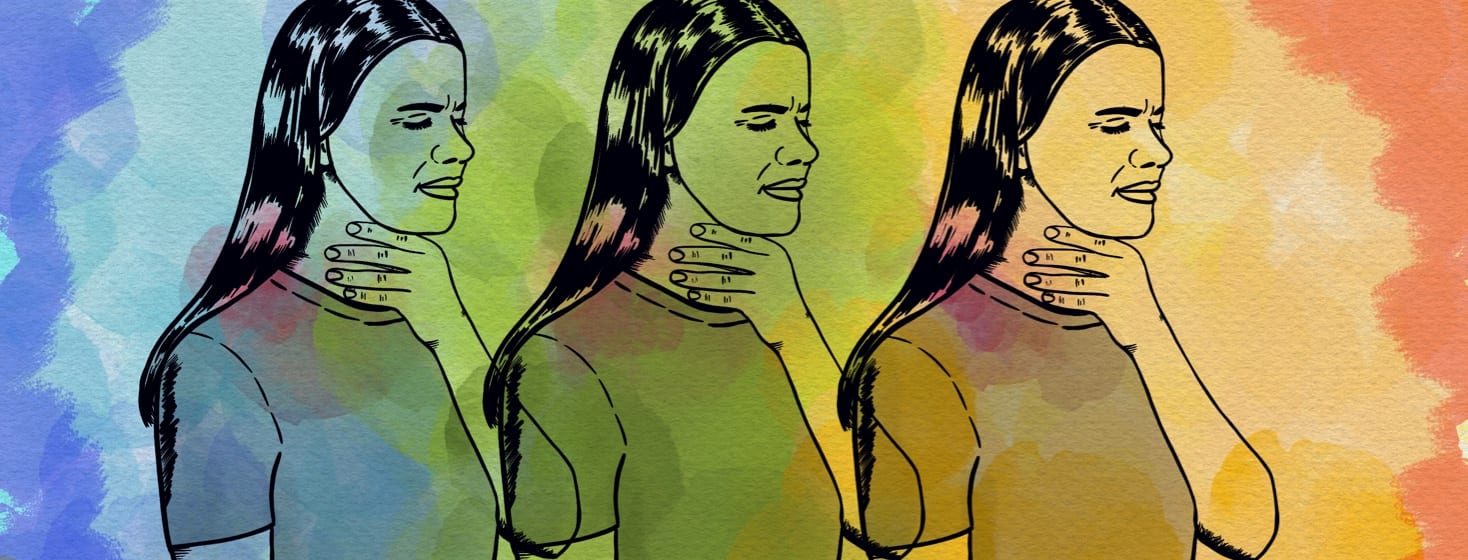Vocal Cord Dysfunction Versus Asthma
My college-aged daughter has been having a tough time with her asthma this year. Her asthma specialist ran a series of tests to see what was going on with her lungs.
Much to our surprise, Daughter’s lungs were normal. In fact – she was better than normal...her lung function was at 150 percent of normal!
Daughter was puzzled because she has been having a hard time breathing and has also been coughing and wheezing. She used her albuterol inhaler or nebulizer, but neither seemed to relieve her symptoms.
Our asthma doctor asked if Daughter had ever been tested for vocal cord dysfunction (VCD). Daughter was diagnosed with VCD in high school and had completed treatment for VCD. But was it causing problems again?
What is VCD?
Vocal cord dysfunction is sneaky because it can mimic asthma. With VCD, the vocal cords close when you inhale instead of opening. And the vocal cord muscles also tighten, which can cause shortness of breath.1
The symptoms of VCD are almost the same as asthma. They include:1
- Coughing
- Wheezing
- Hard time breathing
In addition, you can also have:1
- Hoarse voice
- Voice changes
- Tightness in the throat
Some of the same triggers that cause an asthma attack can also trigger VCD (confusing, I know.) Exercise, colds or other viral infections, lung irritants, airway inflammation, and gastric reflux can trigger VCD.
And people can have asthma and VCD at the same time. (Just to really confuse you!)1
How do you know if it’s VCD or asthma?
It can be hard to tell the difference. Daughter was using albuterol and not feeling any difference, and her lung function test was better than normal, so what else was going on?
With VCD, you may feel the symptoms in your throat (like a tight throat) rather than a tight chest, which can be common with asthma.
Your doctor may refer you to an ear, nose, and throat (ENT) specialist. They can use a scope and camera to see if your vocal cords are opening correctly or if they close when you inhale. For those with a strong gag reflex, a scope can be uncomfortable.
My previous asthma doc (may he rest in peace) taught me that there is another way to diagnose VCD. A spirometry (or lung function test) can show VCD. When you have a lung function test, the computer will create a graph that looks like an avocado with the right side scooped out.
If you do NOT have VCD, the bottom of the avocado-shaped graph will be a smooth rounded shape, like the bottom of an avocado or egg.
If you DO have VCD, the bottom of the avocado shape will be jagged instead of a smooth, rounded shape. A more detailed explanation is: “Isolated flattening of the inspiratory curve of the flow-volume loop while the patient is symptomatic is consistent with a variable extrathoracic obstruction, which is the abnormality most commonly described in VCD.”2
What is the treatment for VCD?
Even if your symptoms are the same for VCD and asthma (coughing, wheezing, and shortness of breath), the treatment is going to be different.
Usually, your doctor will tell you to use your albuterol inhaler or nebulizer if you are having an asthma attack.
VCD is treated with speech therapy and deep breathing techniques. The speech therapist will teach you different ways to relax your throat muscles, which will relax the vocal cords.1
Daughter completed the speech therapy in high school, and it made a big difference in her symptoms. Sounds like it's time for a refresher course.
Has anyone else been diagnosed with VCD? Was it hard to figure out what it was? And what helped you manage your VCD?

Join the conversation